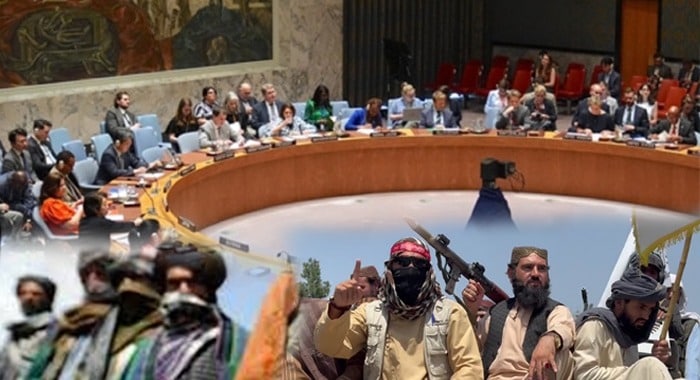Pakistan has delivered a stern warning to the United Nations Security Council, declaring that the unchecked presence of terrorist groups particularly the Tehrik-e-Taliban Pakistan (TTP) in Afghanistan poses an existential threat to regional peace and Pakistan’s national security. Addressing a high-level Security Council debate on Afghanistan, Pakistan’s Permanent Representative to the UN, Ambassador Asim Iftikhar Ahmad, urged the international community to confront the resurgence of cross-border militancy with urgency, clarity, and coordinated resolve.
“The TTP, a UN-listed terrorist organization, is openly operating from Afghan territory, maintaining sanctuaries near Pakistan’s border from where it orchestrates deadly attacks against our security forces and civilian population,” said Ambassador Ahmad. “This growing threat is no longer a bilateral issue it is a regional crisis with global implications.” The ambassador cautioned that ungoverned spaces in Afghanistan have become fertile ground for a nexus of terrorist outfits, including Al-Qaeda and Baloch militant factions, who are actively targeting Pakistan’s strategic infrastructure, economic corridors, and development projects.
He pointed to a recent major counterterrorism operation in April, during which Pakistani forces neutralized 54 TTP militants attempting to cross into Pakistan. He further revealed that Pakistani authorities had recovered large quantities of modern weaponry abandoned during the hasty international withdrawal from Afghanistan in 2021 that are now in the hands of terrorist networks.
“There is credible evidence of operational linkages between the TTP and groups like the Baloch Liberation Army, including its Majeed Brigade,” the envoy warned. “These alliances are not only destabilizing Pakistan’s western frontier but are deliberately targeting our strategic assets and national cohesion.”
Ambassador Ahmad urged the UN and key stakeholders to engage the Afghan de facto authorities with a clear and unified message: Afghan soil must not be used to shelter or support terrorist organizations threatening neighboring states.
Despite the escalating threat, Pakistan continues to advocate for a stable and peaceful Afghanistan. Ambassador Ahmad reaffirmed Islamabad’s commitment to supporting Afghanistan’s economic revival and financial architecture, and highlighted sustained diplomatic efforts led by Deputy Prime Minister and Foreign Minister Senator Mohammad Ishaq Dar to engage the interim Afghan administration.
He welcomed the UN-led Doha process as a potential path toward structured engagement, but underscored that any future framework must be inclusive, regionally responsive, and tied to concrete counterterrorism benchmarks. “Stability in Afghanistan cannot come at the cost of regional insecurity,” he asserted.
Touching on the humanitarian dimension, the ambassador also called on the Taliban authorities to honour international obligations, particularly in relation to women’s and girls’ rights. “The continued restrictions on women’s access to education and public life are deeply troubling and must be urgently addressed,” he said.
He further noted Pakistan’s long-standing commitment to the Afghan people, citing the ongoing third phase of the Allama Iqbal Scholarship Programme, which is currently supporting 4,500 Afghan students in Pakistani universities—a third of whom are women.
In his concluding remarks, Ambassador Ahmad reiterated Pakistan’s firm stance. “We will not allow our sovereignty to be undermined or our people to be held hostage by terrorists operating from across the border,” he said. “Pakistan remains ready to work with all regional and international partners to pursue pragmatic, actionable solutions for lasting peace in Afghanistan—but the time for passive diplomacy is over. The threat is real. The world must respond.”





